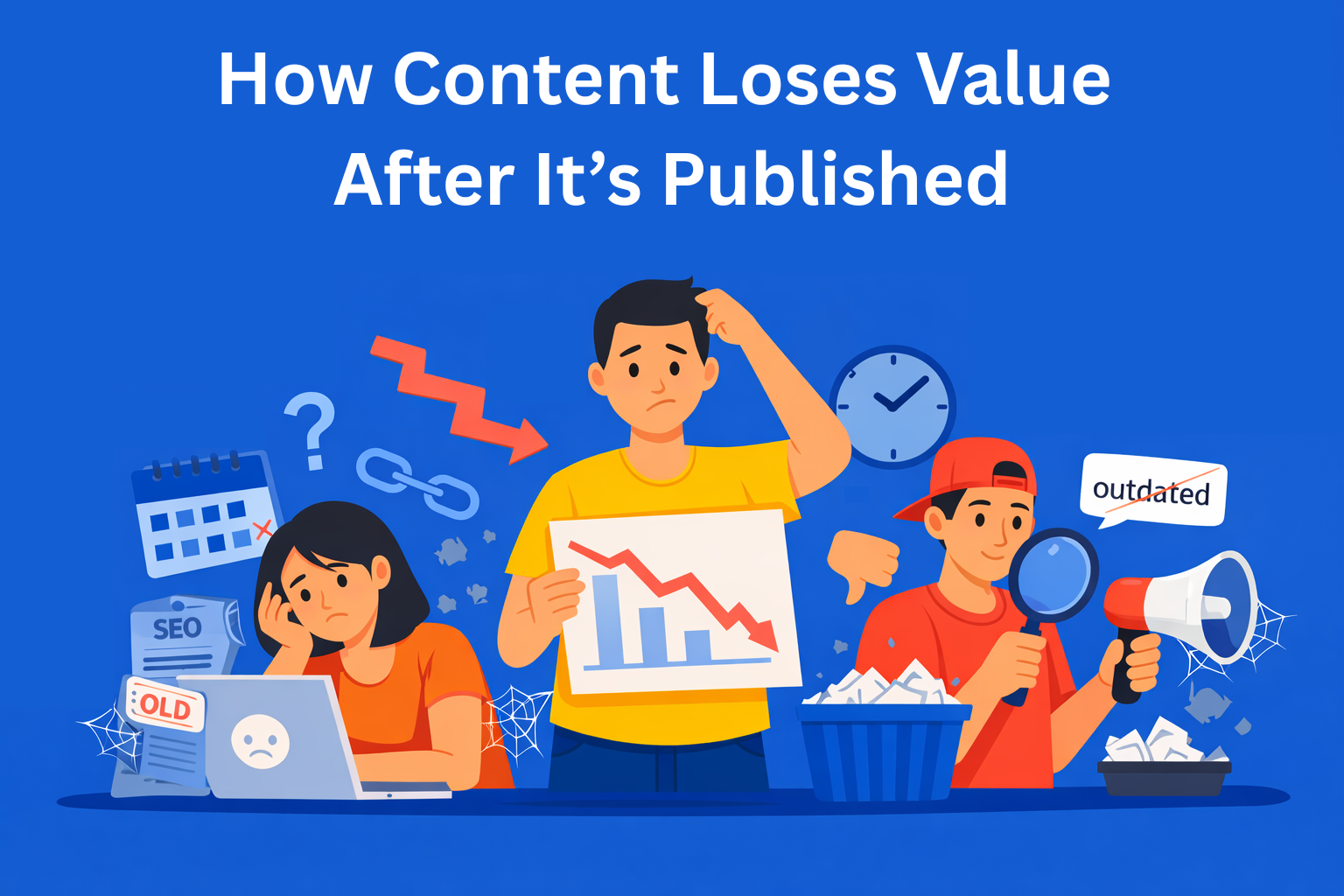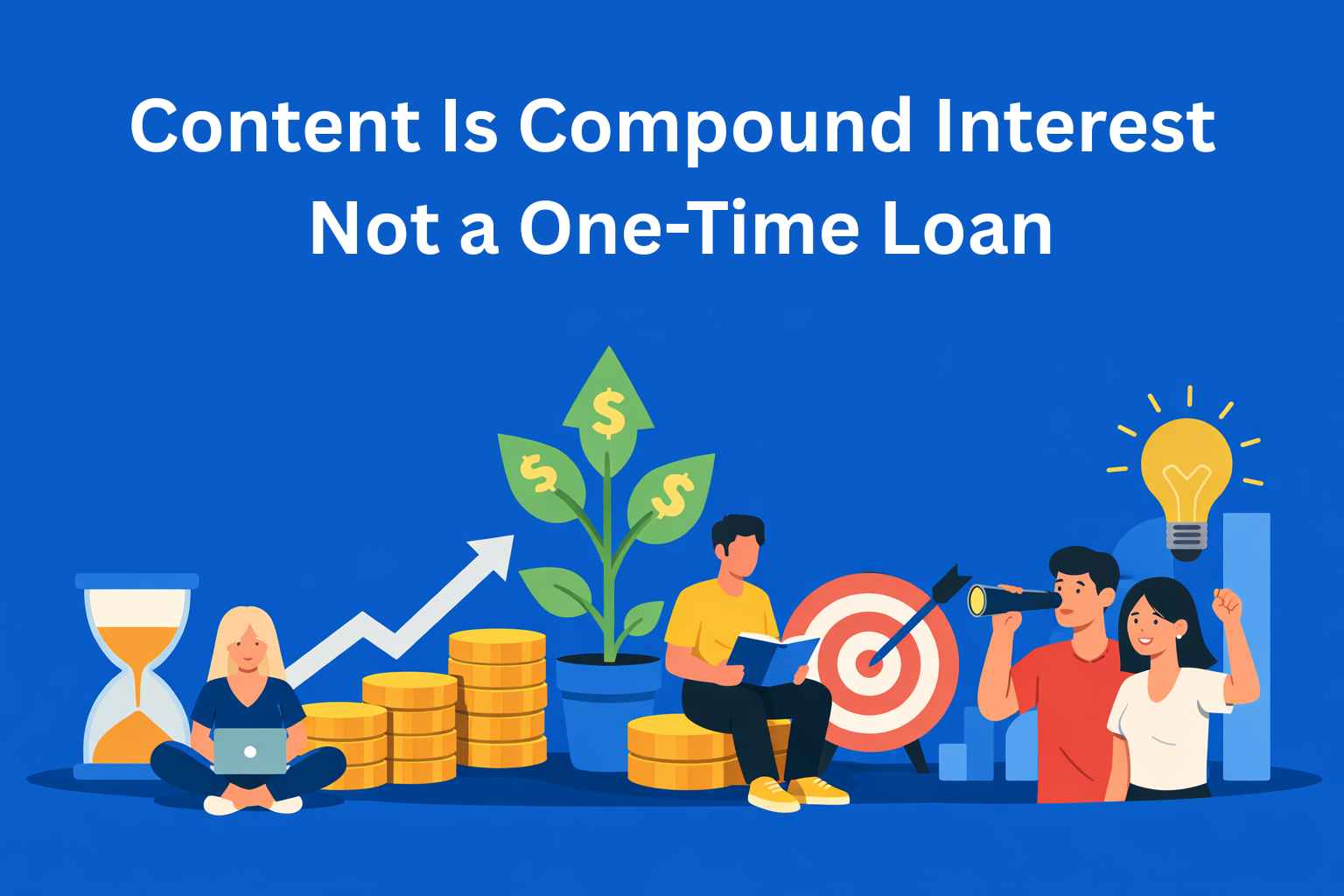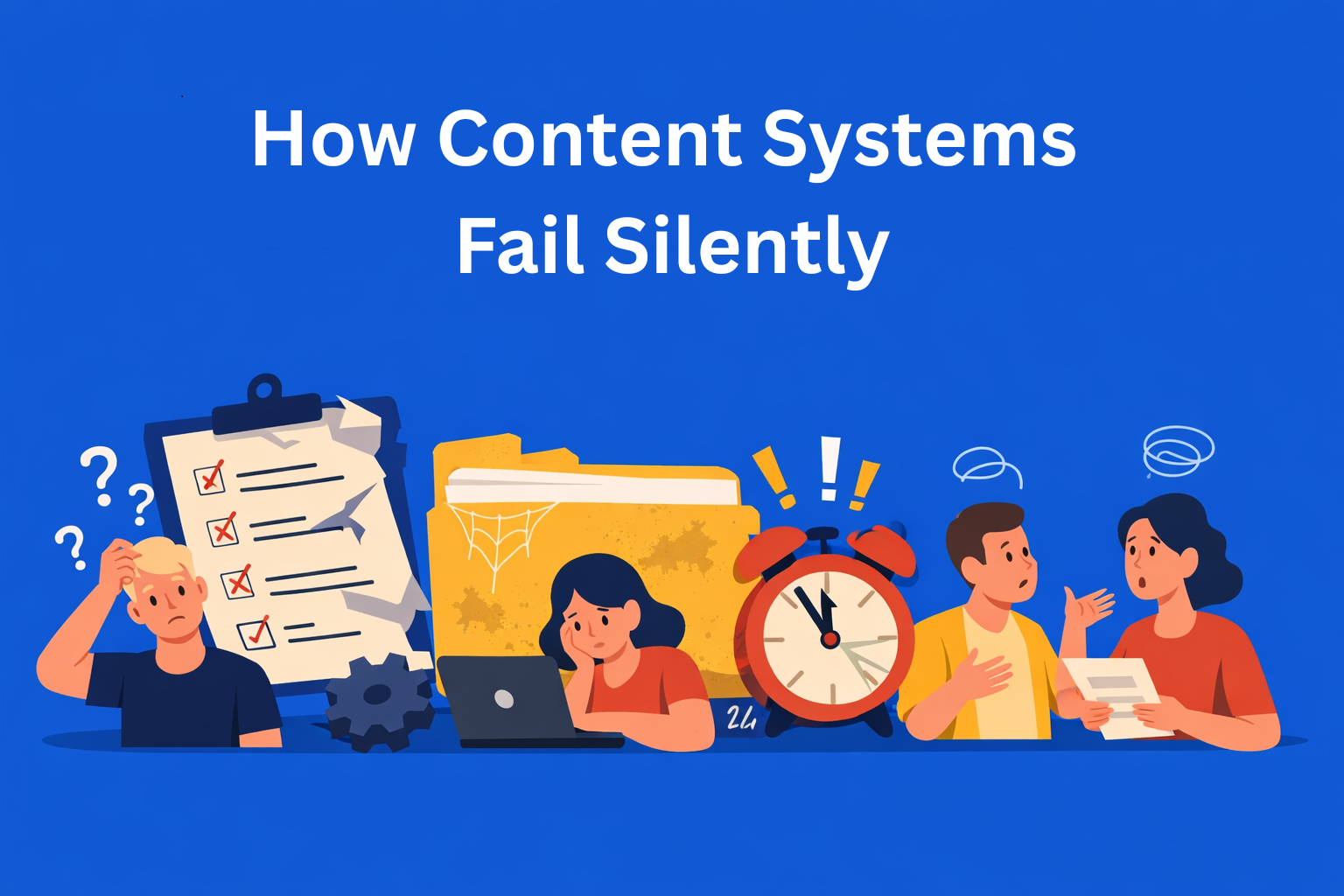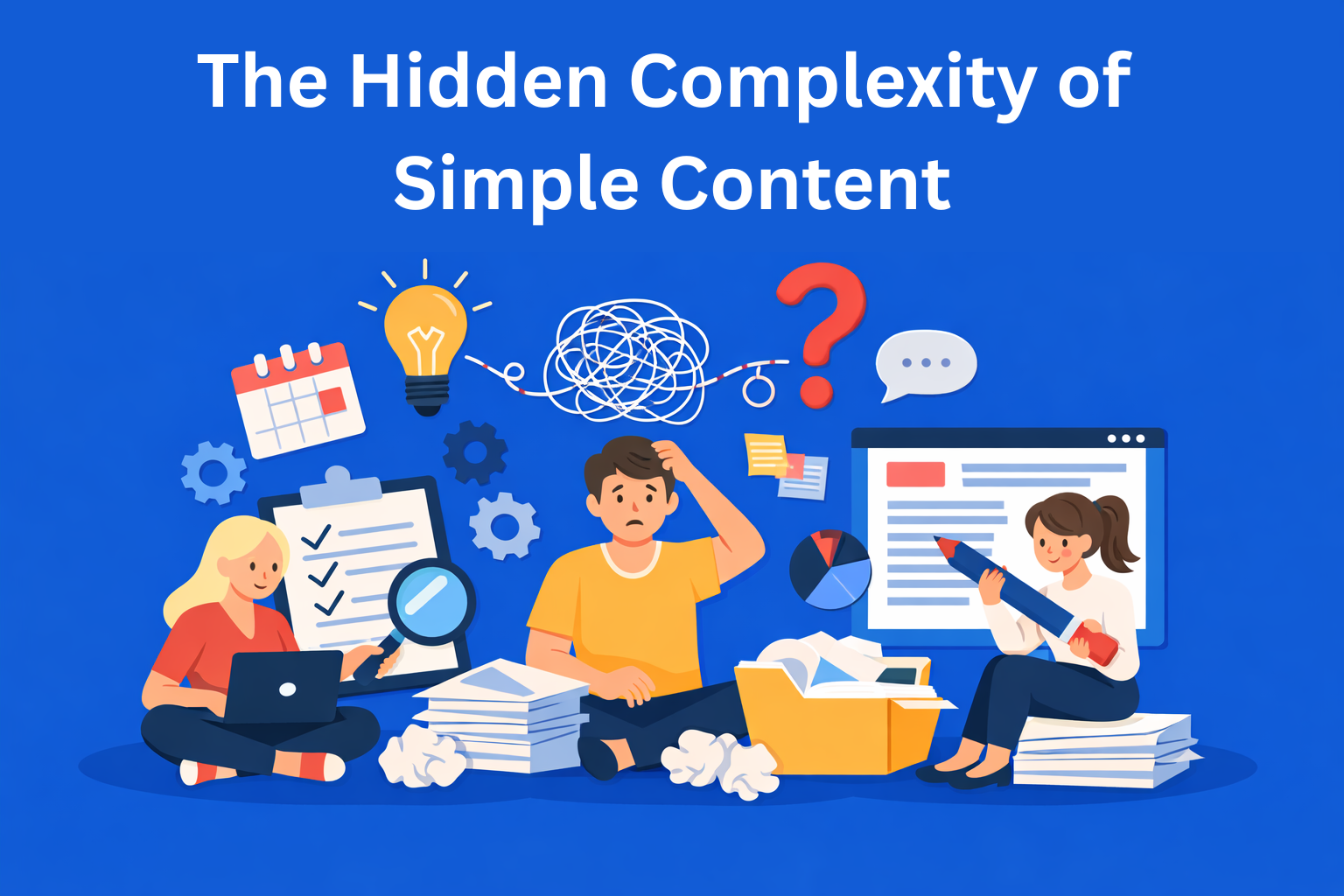Prompt Templates vs. AI Agents: Which Is Better for Content Teams?
Discover the key differences between Prompt Templates and AI Agents. Learn which approach helps content teams create faster, smarter, and more consistent results, and how combining both can boost your AI-powered content strategy.
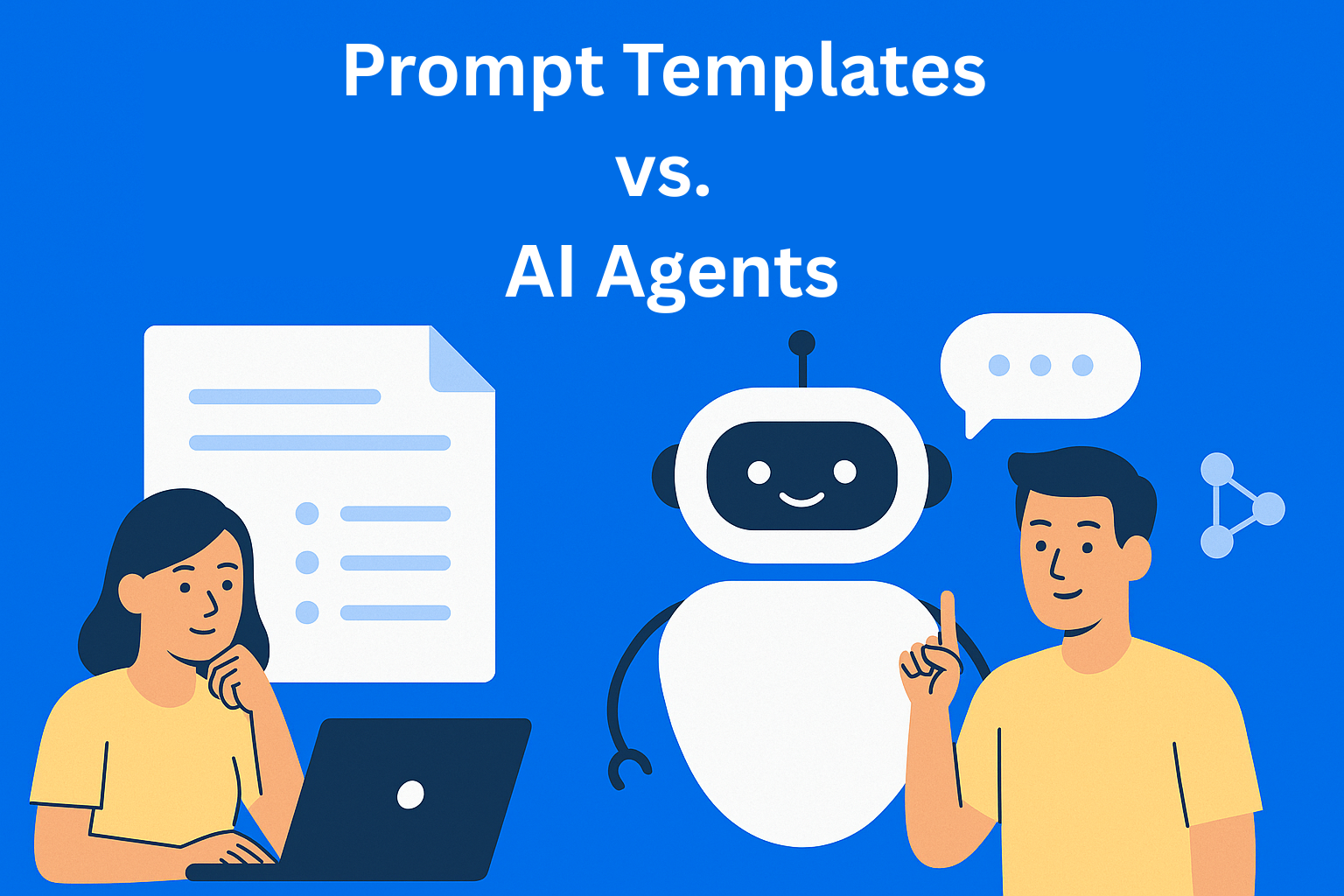
Today, marketing and copywriting teams use AI tools every day - from writing blog posts and social media updates to creating ads and email campaigns. However, as AI tools become more advanced, one question keeps coming up: is it better to use Prompt Templates or AI Agents?
Both approaches have the same goal - helping teams create quality content faster and easier. But the way they work and their benefits are quite different. In this blog, we’ll explain what Prompt Templates are, what AI Agents are, the pros and cons of each, and how to choose the one that best fits your team.
Key Takeaways
- Prompt Templates = speed and simplicity - Great for teams that need quick, consistent results without complex setup or training.
- AI Agents = autonomy and intelligence - They plan, adapt, and learn from data, acting like digital teammates that evolve over time.
- Templates are maps, agents are autopilot - Templates give direction; AI Agents can navigate independently, optimizing along the way.
- Choose based on maturity and goals - New teams benefit from templates; experienced ones thrive with AI Agents and automation.
- Hybrid systems deliver the best of both worlds - Use Prompt Templates for structure and consistency, while AI Agents handle learning, analysis, and adaptation.
What Are Prompt Templates?
A Prompt Template is basically a “ready-made instruction” you use when communicating with an AI model. For example, if you write blog posts every day, you can create a template that looks like this:
“Write a 1000-word blog post about [topic], use a simple tone, include an introduction, three subheadings, and a short conclusion.”
This kind of prompt helps the AI know exactly what to do and how to structure the text each time. It’s especially useful for content teams that produce multiple pieces of content per week.
Advantages of Prompt Templates:
- Speed: you don’t have to come up with new instructions every time.
- Consistency: all texts look similar and follow the same tone and style.
- Simplicity: anyone on the team can easily use a ready-made prompt.
Disadvantages:
- Limited flexibility: if the goal, tone, or context changes, the template might not fit anymore.
- No context awareness: AI doesn’t remember previous tasks and doesn’t know what you did before.
- User-dependent: the quality depends on how well the prompt is written.
In other words, Prompt Templates are great for teams that want to create content quickly and easily without too much complexity. They make it possible to follow a simple pattern, but they aren’t very adaptable when something new comes up. They are fast and straightforward but can’t learn from past experiences or adjust on their own.
What Are AI Agents?
Unlike Prompt Templates, AI Agents go a step further. They aren’t just passive tools that follow commands - they can plan, analyze, and adjust their work autonomously. An AI Agent is, in a way, like a digital member of your team.
For example, imagine you have an AI Agent that knows your topics, brand tone, and SEO goals. Instead of giving it instructions every time, it automatically recognizes what needs to be done. It can analyze the performance of previous posts, suggest new topics, and create content that ranks better on Google.
Advantages of AI Agents:
- Autonomy: you don’t have to input prompts all the time - the agent knows its task.
- Context awareness: it remembers previous results and learns from them.
- Scalability: it can handle multiple tasks at once (e.g., blogs, newsletters, ads).
Disadvantages:
- Setup complexity: it takes a bit more time to configure properly.
- Cost: some advanced systems require paid integrations or extra resources.
- Supervision needed: even though it can work alone, results still need to be reviewed.
In short, AI Agents are ideal for teams looking for a long-term solution and automation for most of their content creation process.
Comparative Analysis: Prompt Templates vs. AI Agents
To better understand the difference, here’s a quick comparison:
Prompt Templates vs. AI Agents
| Criteria | Prompt Templates | AI Agents |
|---|---|---|
| Setup speed | ✅ Fast and easy | ⚠️ Requires setup |
| Flexibility | ❌ Limited | ✅ Highly flexible |
| Learning from data | ❌ No memory | ✅ Learns and adapts |
| Collaboration | ⚠️ Basic | ✅ Active teamwork |
| Scalability | ✅ Good for small teams | ✅ Excellent for large teams |
| Quality control | ✅ High if prompts are good | ⚠️ Requires monitoring |
If your team is just starting with AI tools, Prompt Templates are likely the better choice because they’re simpler. But if you have more experience and want to automate more of the process, AI Agents are the way to go.
When to Choose Prompt Templates and When to Use AI Agents
Use Prompt Templates when:
- Your team is new to AI tools.
- You have simple, repetitive tasks (like posts, product descriptions, or email campaigns).
- You need speed and consistency.
Use AI Agents when:
- You work on complex projects that require multiple steps and planning.
- You need automatic performance analysis and content adjustments.
- You want AI to truly act as part of the team, not just a tool.
Essentially, Prompt Templates are like maps - they show you the direction, but you’re still driving. AI Agents are like autopilot - they take over and reach the destination on their own, though you still need to keep an eye on the process.
A Hybrid Approach: The Best of Both Worlds
Many teams today use a combination of both. For example, they can set up Prompt Templates as a foundation, then connect them to an AI Agent that uses and adjusts them as needed.
Imagine this scenario: your AI Agent uses an SEO template to write a blog post, but before it starts, it checks which keywords are currently trending and automatically includes them in the text. That way, you get both speed and intelligence in a single process.
This hybrid system can be a great solution for content teams that want to maintain control while also benefiting from automation and analytics.
Conclusion
Artificial intelligence keeps evolving, and teams that learn how to use it wisely will have a massive advantage. Prompt Templates remain an excellent choice for quick work and standardized processes, but AI Agents bring a new era of personalization, learning, and automation.
For many, the best approach will be combining both - using templates for structure and consistency, while AI Agents learn, analyze, and optimize results.
Ultimately, the question is no longer “Which is better?” but rather “How can they work best together?” Because the future of content creation doesn’t belong only to humans or AI - it belongs to teams that know how to leverage the strengths of both.



